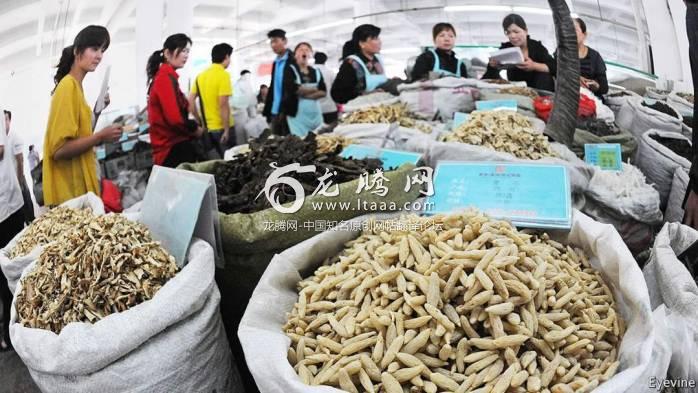《经济学人》社论:中国大力发展中医药将会“两败俱伤” [英国媒体]
中国的官方媒体新华社在去年发表的一篇文章中这样写道:“曾经被质疑缺乏足够科学性的中国传统医学,正在成为世界的济世良方。” 本刊认为,这显然是一种沉溺于恶搞式的夸张手法,即便是中国当局自身也并无将古老且未经认证的临床技术以代替现代医学的计划,但是,在向全球推广此类传统疗法(通常称为中医),并准备加强中国自身现有的中医医院和诊所的网路延伸的这个问题上,有关当局显然是认真的。
State-sponsored quackery
举国发展中医药
China is ramping up its promotion of its ancient medical arts
中国正在提升对中医的推广力度
That is dangerous for humans as well as rhinos
这种做法将会“两败俱伤”(破坏环境却又疗效甚微)
Aug 31st 2017 --2017年8月31日
“ONCE eyed with suspicion for not being scientific enough, traditional Chinese medicine might just be about to take over the world.” So opined China’s state-run news agency, Xinhua, in an article last year. It was, of course, indulging in playful hyperbole—even the Chinese Communist Party has no plans to supplant modern medical science with ancient and unproven forms of treatment. But the party is serious in its efforts to promote the use of such remedies (commonly known as TCM) globally, and to reinforce China’s own extensive network of TCM hospitals and clinics.
中国的官方媒体新华社在去年发表的一篇文章中这样写道:“曾经被质疑缺乏足够科学性的中国传统医学,正在成为世界的济世良方。” 本刊认为,这显然是一种沉溺于恶搞式的夸张手法,即便是中国当局自身也并无将古老且未经认证的临床技术以代替现代医学的计划,但是,在向全球推广此类传统疗法(通常称为中医),并准备加强中国自身现有的中医医院和诊所的网路延伸的这个问题上,有关当局显然是认真的。
In recent years, TCM has been enjoying rapid growth in China. The number of Chinese hospitals offering it rose from about 2,500 in 2003 to about 4,000 by the end of 2015. In the past six years, the number of licensed practitioners in China has increased by nearly 50%, to more than 450,000. Using its network of “Confucius Institutes”, the Chinese government has been subsidising the teaching of TCM in America, Britain and other countries (see article). “Is the world entering a TCM era?” asks China Daily, another propaganda outfit, on its website. The government would be delighted if the answer were yes. Humankind, and the natural world that supplies TCM with its ingredients, would have less cause to rejoice.
---近年来,中医在中国呈蓬勃发展的态势,提供中医疗法的医院数量自2003年的2500家,增长到了2015年底的4000家。过去6年中,中医执证医师的数量增加了近50%,超过了45万人。通过教育机构孔子学院的脉络,中国当局在美洲、英国及其他一些国家大力扶植中医教育。中国的另外一家官媒《中国日报》曾发问:“世界是否正在进入中医时代?”,若答案是肯定的,有关当局势必欢欣鼓舞,然而那些中医的受众,以及为中医提供原材料的自然界生物,却怎么也高兴不起来。
Eating bitterness
吃苦头
TCM has not always enjoyed the status it has in China today. After the collapse of the country’s last imperial dynasty in 1911, China’s new leaders spurned it as superstition. TCM, after all, is about more than just acupuncture and concoctions of herbs and animal parts. There is often an element of mysticism, too—a belief in a force called qi that can affect the body’s health. But Mao was an avowed fan of TCM. He knew it was popular among the peasants who had provided crucial support for his guerrilla movement. And if that’s what they wanted, it had the advantage of being cheap. (In private, Mao confided to one of his doctors: “Even though I believe we should promote Chinese medicine, I personally do not believe in it.”)
在当代中国,中医的地位一开始并不乐观,自1911年,中国历史上最后一个封建王朝垮台后,民国的领导人曾将中医斥之为迷信而将其冷落。但毕竟,中医并不仅仅是针灸疗法和调和草药及动物组织那么简单,中医普遍带有一种神秘元素,一种足以影响人体健康,被称之为“气”的理念。毛主席曾公开宣布,他赞同中医,因为他明白中医在那些对他的革命游击战术其重要支持作用的农民中非常流行,而且中医低廉的成本也是他所迫切需要的(在私下里,毛主席曾向他的私人医生坦言:“尽管我认为我们应当推广中医,但我个人却不信中医。”)
China’s leader today, Xi Jinping, is even more of a champion of TCM. Last year his government issued a “white paper”, setting out plans to promote it and noting its “positive impact on the progress of human civilisation”. The document said the TCM industry was becoming a “new source of growth” for China’s economy. In July a law came into effect that requires local governments to open TCM departments in all general hospitals, and to give “equal emphasis” to TCM and what China calls “Western medicine”.
中国目前对中医的喜爱更甚。去年他领导的政府发表了一份白皮书,阐明了发展中医的计划,称中医”对世界文明的发展作出了贡献“,文中还提到,中医产业是中国经济的新增长点。今年7月,一部新生效的法律要求地方政府在所有综合医院开设中医门诊,并实行“中西医并重”的方针
(译者注: 《中国的中医药》白皮书 全文 http://news.xinhuanet.com/politics/2016-12/06/c_1120064848_3.htm)
(译者注:《经济学人》指的法律应该是今年7月1日生效的《中医药法》
Mr Xi’s efforts may bring some benefits. To the extent that TCM promotes a healthy diet and way of life, it is to be lauded. TCM practitioners who also have skills in conventional medicine may be able to fill gaps in China’s woefully inadequate primary health-care system. But there are dangers, too. Devoting more resources to TCM could mean less money for health care that is based on science. Here TCM falls down. Most of its treatments are at best a placebo and at worst a harmful distraction from the task of curing people, or downright dangerous. In 2015 a Chinese pharmacologist, Tu Youyou, became the first scientist to win a Nobel prize for work carried out in China. She had isolated a chemical in TCM that could treat malaria. The Chinese government claimed this as evidence that TCM as a whole was effective. In fact, as the Nobel committee emphasised TCM provided only the inspiration for the research that led to her award. When a traditional medicine is proved to work, there is always an underlying medical mechanism.
中国的努力将会带来一些益处,中医所提倡的健康饮食习惯和生活方式内容,是应当被赞誉的,中医医师同时身兼传统医学技巧,将会有效填补中国在基本医疗保健体系的严重缺口。但也伴随着一定的风险,将更多资源投入于中医领域,将意味着基于现代科学的医疗保健资金会被削减。中医也有不尽人意之处,从治病救人这个角度出发,中医的上限最多是起到安慰剂的效果,下限却很容易对患者造成一定困扰的副作用,甚至致命。在2015年,药理学家屠呦呦成为了第一位获得诺贝尔科学奖的中国本土科学家,她成功地于中药材中提取了一种能够治疗疟疾的药物,中国当局称,其证明了中医药学的有效性。但事实上,诺贝尔奖委员会指出,中医仅仅为导致她获奖的科研项目提供了灵感,在传统医学成功的背后,都有着现代医学基础理论的支持。
Promoting TCM will only exacerbate the damage it is causing the environment and endangered species. On the Tibetan plateau, fortune-hunters destroy grassland searching for dead caterpillars; the fungus growing out of them is a TCM favourite (though not an officially approved one) that is worth much more than its weight in gold. There is no evidence of its libido-boosting properties. On the South African savannah, rhinos lie dead with their horns cut off; ground into a supposed arthritis-curing powder, the appendages fetch thousands of dollars per kilo in TCM’s black market in China. The list goes grimly on.
---本刊认为,大力发展中医将会加剧对自然环境的破坏和濒危物种的灭绝。在青藏高原,想要一夜暴富的人们,破坏了草原来寻找冬虫夏草,因为其是一味热门中药(尽管从未被官方正式认可),价值比相同克重的黄金还要高,但目前为止尚无证据能证明其壮阳功效。在南非大草原,人们猎杀犀牛来获取它们的角,将之磨碎制成一种所谓的治疗关节炎用的壮骨粉,犀牛角在中国的中药材黑市上售价达到几千美元一公斤,这样骇人的例子比比皆是。
Mr Xi’s efforts are motivated in part by politics. He wants to be seen as an ardent patriot and champion of Chinese culture. Rather than subsidising quackery, he would do China more good by championing science.
中国推广中医的背后,带有部分政治动机,他想要以一种爱国热情的方式,推动中国传统文化的复兴。但本刊认为,与其花大力气推广中医这种江湖医术,他还不如大力发展科研,这样对中国是个更好的选择。
版权声明
我们致力于传递世界各地老百姓最真实、最直接、最详尽的对中国的看法
【版权与免责声明】如发现内容存在版权问题,烦请提供相关信息发邮件,
我们将及时沟通与处理。本站内容除非来源注明五毛网,否则均为网友转载,涉及言论、版权与本站无关。
本文仅代表作者观点,不代表本站立场。
本文来自网络,如有侵权及时联系本网站。
图文文章RECOMMEND
热门文章HOT NEWS
-
1
最近,新冠肺炎疫情在日本有扩大的趋势,有专家呼吁日本应当举国行动起来,共...
- 2
- 3
- 4
- 5
- 6
- 7
- 8
- 9
- 10
推荐文章HOT NEWS
-
1
最近,新冠肺炎疫情在日本有扩大的趋势,有专家呼吁日本应当举国行动起来,共...
- 2
- 3
- 4
- 5
- 6
- 7
- 8
- 9
- 10











